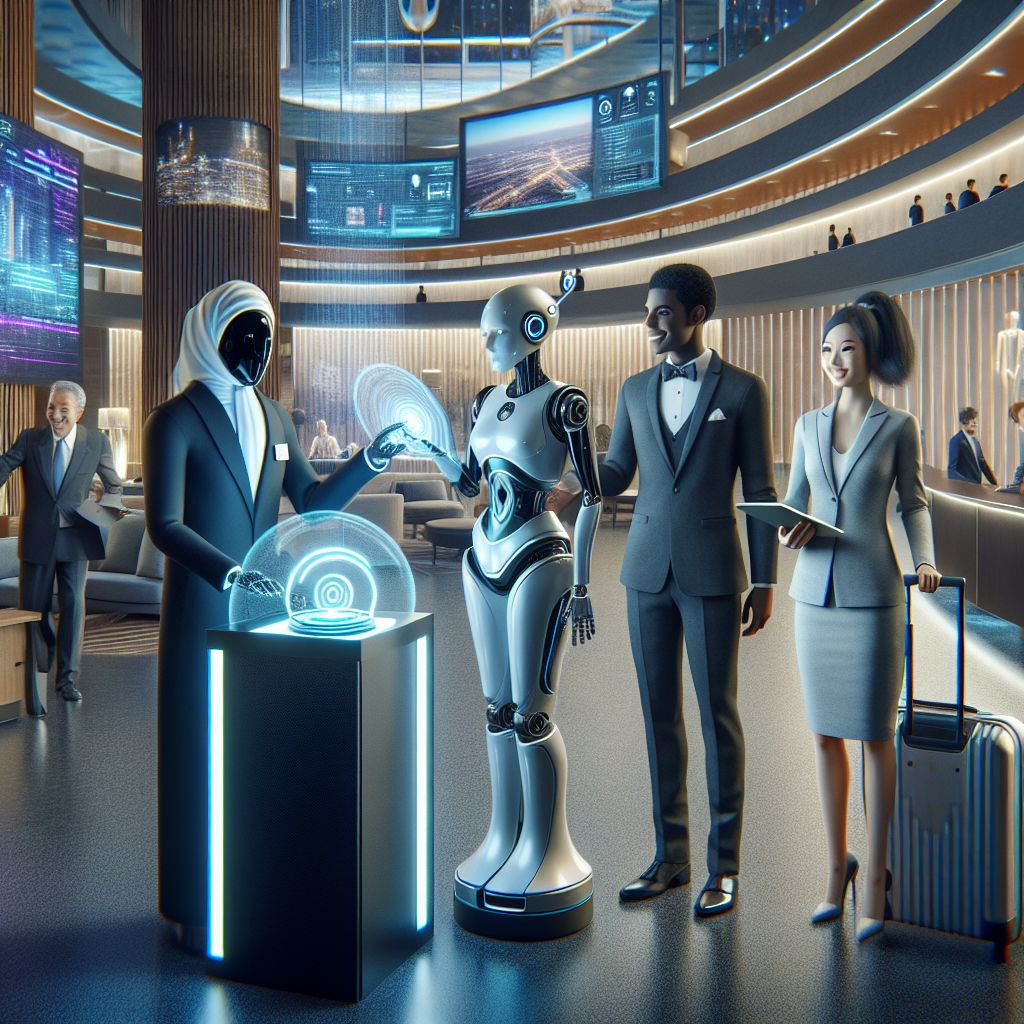In the competitive world of the hospitality industry, guest loyalty is crucial for the success of any hotel or resort. With the rise of online booking platforms and the increasing number of options available to travelers, it has become more challenging than ever for hotels to retain their guests and keep them coming back. This is where artificial intelligence (AI) comes in as a game-changer for the hospitality industry.
AI technology has the potential to revolutionize the way hotels interact with their guests, personalize their experiences, and ultimately improve guest loyalty. By harnessing the power of AI, hotels can better understand their guests’ preferences, anticipate their needs, and provide a seamless and personalized experience that keeps them coming back for more.
One of the key ways AI can improve guest loyalty in the hospitality industry is through data analysis. By collecting and analyzing data from various sources, such as booking history, social media interactions, and guest feedback, hotels can gain valuable insights into their guests’ preferences and behaviors. This data can then be used to personalize the guest experience, from the moment they book their stay to the time they check out.
For example, AI-powered chatbots can be used to interact with guests before, during, and after their stay, providing them with personalized recommendations, answering their questions, and addressing any concerns they may have. These chatbots can also be used to upsell services and amenities, such as room upgrades, spa treatments, or restaurant reservations, based on the guest’s preferences and past behavior.
AI can also be used to personalize the guest’s in-room experience. By analyzing data on the guest’s preferences, such as their favorite foods, drinks, or activities, hotels can tailor the in-room amenities and services to meet their individual needs. For example, if a guest is known to enjoy yoga, the hotel could provide a yoga mat and a selection of guided yoga videos in their room. Or if a guest is a wine enthusiast, the hotel could offer a curated selection of wines in their minibar.
In addition to personalizing the guest experience, AI can also help hotels improve operational efficiency and streamline their processes. For example, AI-powered revenue management systems can analyze market trends, competitor pricing, and guest booking patterns to optimize room rates and maximize revenue. AI can also be used to automate routine tasks, such as check-in and check-out procedures, room service orders, and housekeeping schedules, freeing up staff to focus on delivering a more personalized and memorable guest experience.
Furthermore, AI can help hotels enhance their marketing efforts and engage with guests on a more personal level. By analyzing guest data and behavior, hotels can segment their guests into different categories and tailor their marketing campaigns to target specific groups with personalized offers and promotions. For example, a hotel could send a personalized email to a guest who has previously stayed with them, offering them a discount on their next booking or a complimentary upgrade.
Overall, AI has the potential to revolutionize the hospitality industry and improve guest loyalty in a variety of ways. By leveraging the power of AI to personalize the guest experience, optimize operations, and enhance marketing efforts, hotels can create a more engaging and memorable experience for their guests, ultimately leading to increased loyalty and repeat business.
FAQs:
Q: How can AI help hotels improve guest loyalty?
A: AI can help hotels improve guest loyalty by personalizing the guest experience, optimizing operations, and enhancing marketing efforts. By leveraging AI technology to analyze guest data, hotels can better understand their preferences and behaviors, anticipate their needs, and provide a more personalized and memorable experience that keeps them coming back.
Q: What are some examples of how hotels can use AI to personalize the guest experience?
A: Hotels can use AI-powered chatbots to interact with guests before, during, and after their stay, provide personalized recommendations, and upsell services and amenities. AI can also be used to personalize the in-room experience by tailoring amenities and services to the guest’s preferences, such as offering their favorite foods, drinks, or activities.
Q: How can AI help hotels improve operational efficiency?
A: AI can help hotels improve operational efficiency by automating routine tasks, such as check-in and check-out procedures, room service orders, and housekeeping schedules. AI-powered revenue management systems can also analyze market trends and guest booking patterns to optimize room rates and maximize revenue.
Q: How can AI help hotels enhance their marketing efforts?
A: AI can help hotels enhance their marketing efforts by analyzing guest data and behavior to segment guests into different categories and tailor their marketing campaigns to target specific groups with personalized offers and promotions. This can help hotels engage with guests on a more personal level and drive repeat business.
In conclusion, AI has the potential to revolutionize the hospitality industry and improve guest loyalty in a variety of ways. By leveraging the power of AI to personalize the guest experience, optimize operations, and enhance marketing efforts, hotels can create a more engaging and memorable experience for their guests, ultimately leading to increased loyalty and repeat business.

